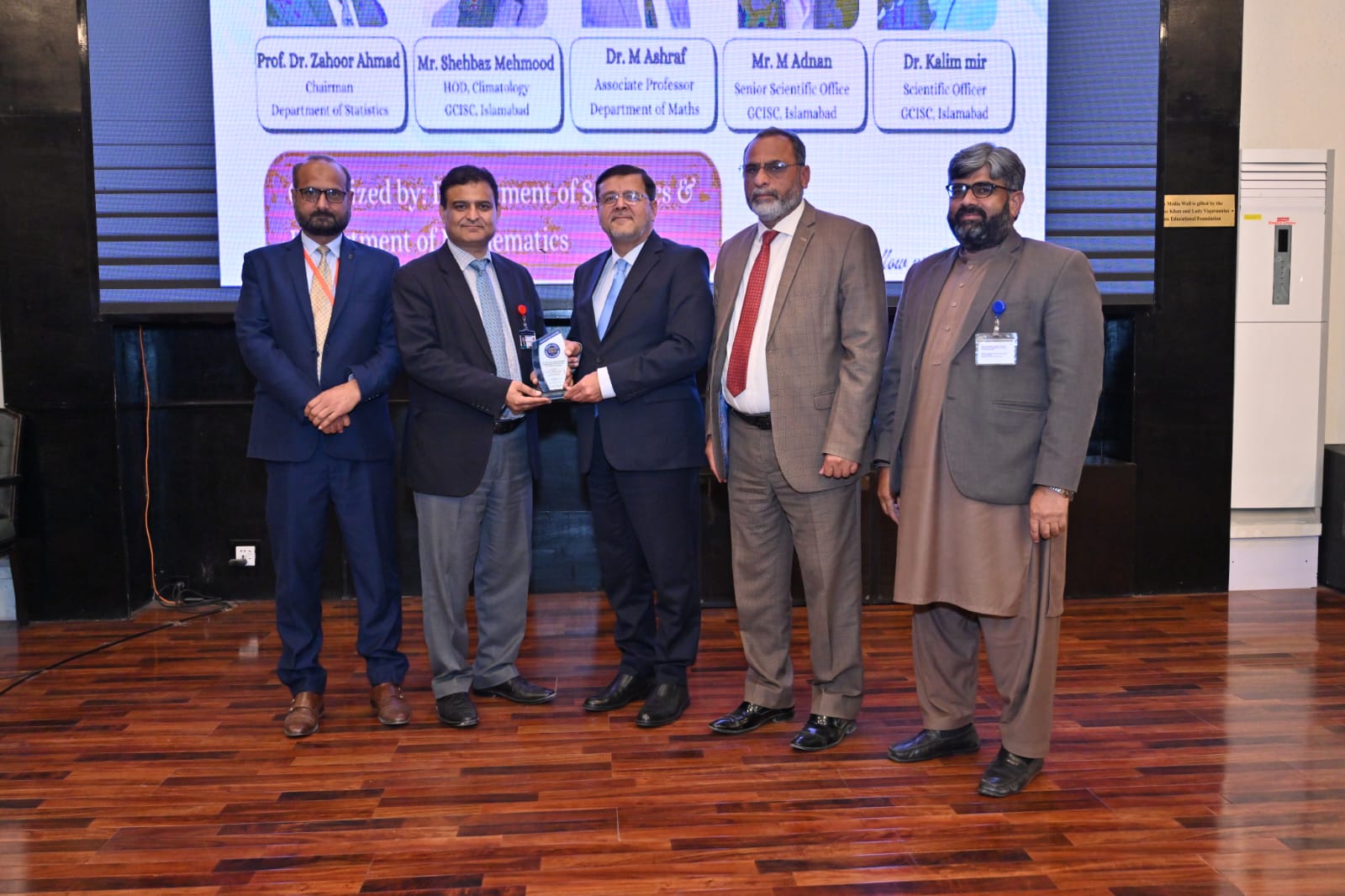Seminar
The Department of Statistics and the Department of Mathematics at the University of Sargodha organized a one-day seminar on the theme "Interdisciplinary Community Interaction on Climate Change." The seminar focused on exploring sustainable solutions to climate change through enhanced interdisciplinary cooperation.
Vice-Chancellor of the University of Sargodha, Prof. Dr. Qaisar Abbas, attended the event as the chief guest. Other notable participants included senior scientific officer Muhammad Adnan and scientific officer Dr. Kaleem Mir from the Global Change Impact Studies Centre, Islamabad, along with Shehbaz Mehmood, Head of the Department of Climatology. Prof. Dr. Amir Ali, Dean of the Faculty of Sciences, Prof. Dr. Zahoor Ahmad, Chairman of the Department of Statistics, Prof. Dr. Ghulam Abbas, Chairman of the Department of Mathematics, Dr. Muhammad Ashraf, Associate Professor of Mathematics, along with faculty members and a large number of students from both departments were also present.
Addressing the seminar, Prof. Dr. Qaisar Abbas emphasized that the event provided an excellent platform for bringing together experts from various fields to foster collaboration in mitigating the impacts of climate change. He highlighted that such cooperation not only facilitates effective solutions to environmental challenges but also contributes to the development of more informed and evidence-based climate policies at both national and global levels.
The Vice Chancellor also stated that the collaboration between different disciplines can help minimize the effects of environmental crises, optimize resource utilization, and promote sustainable development.
Dr. Qaisar Abbas further reiterated the University of Sargodha's commitment to providing quality education and encouraging advanced research aimed at solving societal challenges.
Experts at the seminar underscored the significance of interdisciplinary cooperation in understanding the complexities of climate change. They emphasized the need for launching interdisciplinary research programs that integrate statistics, mathematics, environmental science, and economics to develop effective solutions for climate-related issues.
The speakers highlighted that statistical and mathematical models can play a crucial role in shaping environmental policies. Through data-driven analysis of global warming, rising sea levels, and extreme weather patterns, strategic solutions can be formulated to reduce environmental degradation. Additionally, these models can help in devising sustainable approaches to address climate challenges.
The experts also pointed out that interdisciplinary collaboration is essential for achieving Sustainable Development Goals (SDGs). They explained that using statistical and mathematical methods enables accurate measurement and better analysis of environmental impacts, facilitating the formulation of well-informed sustainability strategies.
At the conclusion of the seminar, Vice-Chancellor Prof. Dr. Qaisar Abbas presented commemorative shields to the participants.

